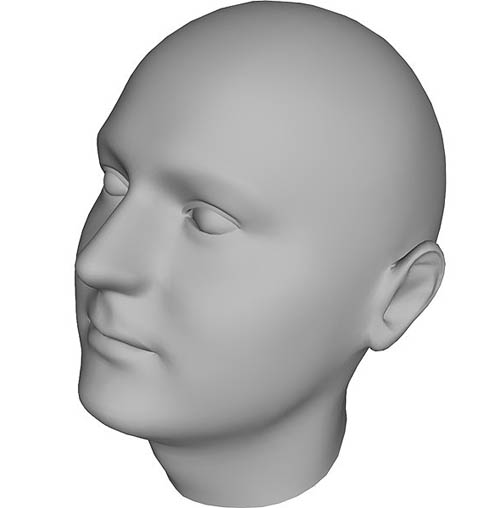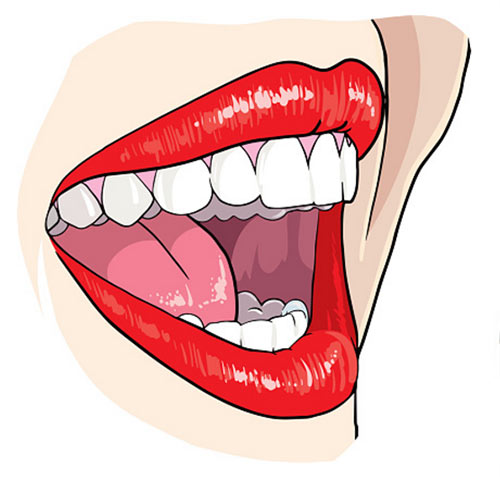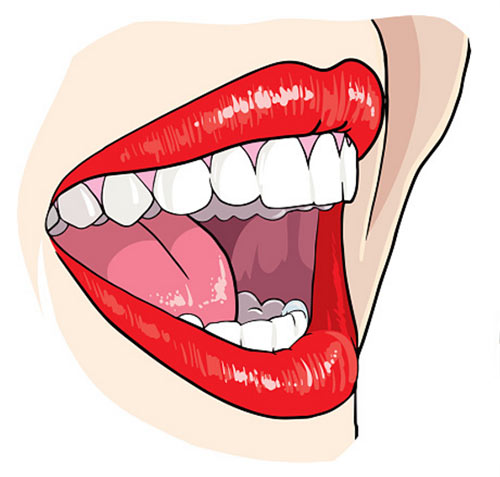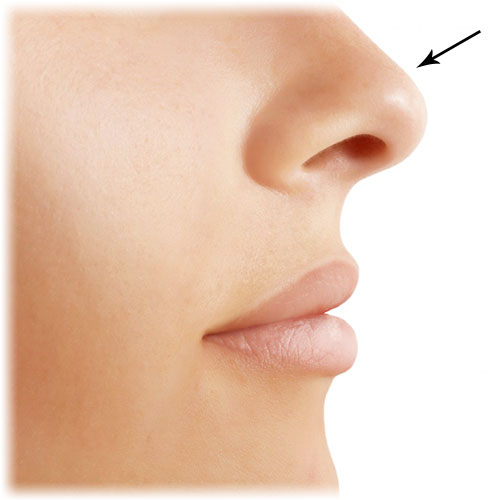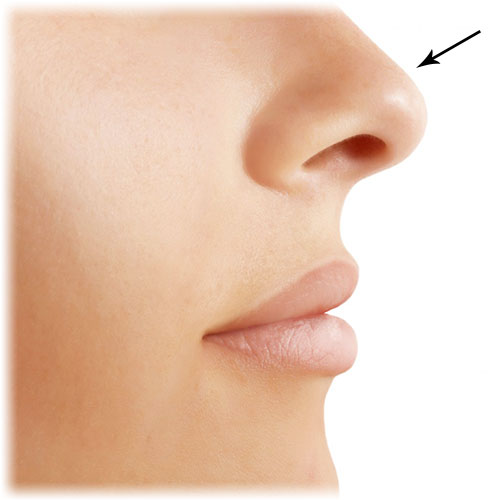funny
Humorous; causing laughter
خنده دار،بامزه
The funny looks and acts of charlie chaplin are momorable.
قیافه و حرکات خنده دار چارلی چاپلین به یادماندنی هستند.
Oxford Essential Dictionary
funny
adjective (funnier, funniest)
1 making you laugh or smile same meaning amusing:
a funny story
He's so funny!
2 strange or surprising:
There's a funny smell in this room.
Longman Dictionary of Contemporary English
funny
fun‧ny S1 W3 /ˈfʌni/ BrE AmE adjective (comparative funnier, superlative funniest)
[Date: 1700-1800; Origin: fun]
1. AMUSING making you laugh
funny story/joke/film etc
Do you remember any funny stories about work?
hilariously/hysterically/wickedly funny
a wickedly funny scene from the film
the funniest man in Britain
If this is your idea of a joke, I don’t find it at all funny.
Luckily, when I explained the situation, he saw the funny side (=recognized that it was partly funny).
His laughter stopped her mid-sentence. ‘What’s so funny?’ she demanded.
It’s not funny (=don’t laugh), Paul; poor Teresa was nearly in tears.
► Do not use funny to mean ‘enjoyable’. Use fun: The picnic was really fun.
2. STRANGE unusual, strange, or difficult to explain:
I had a funny feeling something was going to happen.
What’s that funny smell?
It’s funny how you remember the words of songs, even ones you don’t really like.
It’s funny (that)
It’s funny that the kids are so quiet.
That’s funny. I was sure I had $5 in my purse, but it’s not there now.
People tell me I ran the greatest race of my life, but the funny thing is I can’t remember much about it.
It’s a funny old world (=strange or unusual things happen in life).
3. DISHONEST appearing to be illegal, dishonest, or wrong:
There’s something funny going on here.
Remember, Marvin, no funny business while we’re out.
4. a funny look if you give someone a funny look, you look at them in a way that shows you think they are behaving strangely:
I hunkered down, ignoring the funny looks from passers-by.
5. ILL feeling slightly ill:
I always feel funny after a long car ride.
6. CRAZY British English informal slightly crazy:
After his wife died he went a bit funny.
7. go funny informal if a machine, piece of equipment etc goes funny, it stops working properly:
I just turned it on and the screen went all funny.
8. very funny! spoken used when someone is laughing at you or playing a trick and you do not think it is amusing:
Very funny! Who’s hidden my car keys?
9. I’m not being funny (but) British English spoken used when you are serious or do not want to offend someone:
I’m not being funny, but we haven’t got much time.
10. funny little something used to describe something you like because it is small, unusual, or interesting:
The town centre is crammed with funny little shops.
his funny little grin
11. funny peculiar or funny ha-ha? British English, funny weird/strange or funny ha-ha? American English used when someone has described something as funny and you want to know whether they mean it is strange or amusing:
‘Tim’s a funny guy.’ ‘Funny weird or funny ha-ha?’
• • •
THESAURUS
▪ funny making you laugh: John told me a really funny joke. | She’s very talented and funny.
▪ amusing especially written funny and enjoyable. Amusing is more formal than funny. It is often used when something is a little funny and makes you smile, rather than laugh: an amusing anecdote | He found the whole incident rather amusing.
▪ humorous intended to be funny – used about stories, films, articles etc that have situations that are a little funny: humorous stories | The movie is meant to be humorous.
▪ witty using words in a funny and clever way: witty remarks | How witty!
▪ hilarious /hɪˈleəriəs $ -ˈler-/ (also hysterical informal) extremely funny: The children thought it was hilarious. | The movie has some hilarious scenes. | It was hysterical! You should have seen his face!
▪ comical funny in a strange or silly way – often used when something is not intended to be funny: It was quite comical watching him trying to dance. | her own comical attempts at painting
▪ comic [only before noun] a comic film, play, novel etc is intended to be funny: a comic drama
▪ light-hearted done for amusement or enjoyment, and not intended to be serious: The programme is a light-hearted look at recent political events.
▪ comedy noun [countable] a film, play, or television programme that is intended to be funny: a comedy by Shakespeare | She has appeared in several television comedies. | a new comedy series on Channel 4
Oxford Advanced Learner's Dictionary
funny
funny [funny funnies funnier funniest] [ˈfʌni] [ˈfʌni] adjective (fun·nier, fun·ni·est)
AMUSING
1. making you laugh; amusing
• a funny story
• That's the funniest thing I've ever heard.
• It's not funny! Someone could have been hurt.
• I was really embarrassed, but then I saw the funny side of it.
• (ironic) Oh very funny! You expect me to believe that?
• ‘ What's so funny?’ she demanded. Note that funny does not mean ‘enjoyable’
• The party was great fun.
• The party was very funny.
STRANGE
2. difficult to explain or understand
Syn: strange, Syn: peculiar
• A funny thing happened to me today.
• It's funny how things never happen the way you expect them to.
• That's funny — he was here a moment ago and now he's gone.
• The funny thing is it never happened again after that.
• The engine's making a very funny noise.
• I'm pleased I didn't get that job, in a funny sort of way.
SUSPICIOUS/ILLEGAL
3. (informal) suspicious and probably illegal or dishonest
• I suspect there may be something funny going on.
• If there has been any funny business, we'll soon find out.
WITHOUT RESPECT
4. (BrE) humorous in a way that shows a lack of respect for sb
Syn: cheeky
• Don't you get funny with me!
ILL/SICK
5. (informal) slightly ill/sick
• I feel a bit funny today— I don't think I'll go to work.
CRAZY
6. (BrE, informal) slightly crazy; not like other people
Syn: strange, Syn: peculiar
• That Dave's a funny chap, isn't he?
• She went a bit funny after her husband died.
MACHINE
7. (informal) not working as it should
• My computer keeps going funny.
Idioms: funny ha-ha ▪ funny peculiar
See also: funny weird
Thesaurus:
funny adj.
1.
• It's the funniest story you ever heard.
amusing • • witty • • humorous • • comic • • hilarious • • light-hearted • • entertaining •
a/an funny/amusing/witty/humorous/comic/light-hearted/entertaining story
a/an funny/amusing/witty/humorous/light-hearted/entertaining speech
a/an funny/amusing/witty guy/man/woman
Which word? Amusing is the most general of these words and can be used to describe events, activities and occasions. Funny can describe people, jokes and stories, things that happen or anything that makes people laugh. Comic is used especially to talk about writing and drama. Humorous is not quite as strong as funny or comic.
2. (especially spoken)
• The engine's making a very funny noise.
strange • • odd • • bizarre • • mysterious • • uncanny • • unusual • • curious • |especially spoken weird • |BrE formal peculiar •
funny/strange/odd/bizarre/uncanny/unusual/curious/weird/peculiar that…
funny/strange/odd/uncanny/curious/weird/peculiar how/what…
a/an funny/strange/odd/bizarre/mysterious/unusual/curious/weird/peculiar thing
a/an funny/strange/odd/bizarre/uncanny/unusual/curious/weird/peculiar feeling
Synonyms:
funny
amusing • entertaining • witty • humorous • comic • hilarious
These words all describe sb/sth that makes you laugh or smile.
funny • that makes you laugh: ▪ a funny story ◊ ▪ He was a very funny guy.
amusing • funny and enjoyable: ▪ It's a very amusing game to play.
entertaining • amusing and interesting: ▪ It was a very entertaining evening.
witty • clever and amusing; able to say or write clever and amusing things: ▪ a witty remark ◊ ▪ a witty public speaker
humorous • funny and entertaining; showing a sense of humour: ▪ a humorous look at the world of fashion
comic • that makes you laugh: ▪ Many of the scenes in the book are richly comic.
hilarious • extremely funny
funny, amusing, humorous or comic?
Amusing is the most general of these words because it includes the idea of being enjoyable as well as making people laugh and can be used to describe events, activities and occasions: ▪ an amusing party/game/evening ◊ a funny/humorous/comic party/game/evening. Humorous is more about showing that you see the humour in a situation, than actually making people laugh out loud. Comic is used especially to talk about writing and drama or things that are funny in a deliberate and theatrical way. It is not used to describe people (except for comic writers). Funny can describe people, jokes and stories, things that happen, or anything that makes people laugh.
a(n) funny/amusing/entertaining/witty/humorous/comic story
a(n) funny/amusing/entertaining/witty/humorous speech
a(n) funny/entertaining/witty/humorous/comic writer
a(n) funny/amusing/hilarious joke
to find sth funny/amusing/entertaining/witty/humorous/hilarious
Example Bank:
• Didn't it strike you as funny that Adam wasn't there?
• Don't you find it a bit funny that she never mentions her husband?
• He's a funny little man.
• He's not even remotely funny.
• Helen gave me a rather funny look.
• His performance was hilariously funny.
• It's a funny old world, isn't it?
• The movie gets funnier nearer the end.
• This wine tastes funny.
• You should have seen it— it was terribly funny!
• ‘What's so funny?’ she demanded.
• He told us a funny story about his time in the army.
• He was a very funny guy as well as a kind person.
• I was really embarrassed, but then I saw the funny side of it.
• I'm pleased I didn't get that job, in a funny sort of way.
• It's funny how things never happen the way you expect them to.
• It's not funny! Someone could have been hurt.
• That's funny— he was here a moment ago and now he's gone.
• That's the funniest thing I've ever heard.
• The engine's making a very funny noise.
• The funny thing is it never happened again after that.
Cambridge Advanced Learner's Dictionary
Cambridge Advanced Learner's Dictionary - 4th Edition
funny / ˈfʌn.i / adjective (HUMOROUS)
A1 humorous; causing laughter:
Do you know any funny jokes?
I've never found Charlie Chaplin very funny.
It's a really funny film.
It's not funny - don't laugh!
Breaking your leg isn't funny (= is serious) , I can assure you.
No matter how disastrous the situation there always seems to be a funny side to it .
Don't you try to be funny with me (= be serious and show respect) , young man!
funny / ˈfʌn.i / adjective (STRANGE)
B1 strange, surprising, unexpected, or difficult to explain or understand:
The washing machine is making a funny noise again.
He's got some funny ideas about how to bring up children.
That's funny - I'm sure I left my keys here.
A funny thing happened to me on the way to the crematorium.
Do you think this jacket looks a bit funny with these trousers?
It 's funny how Alec always disappears whenever there's work to be done.
She's a funny girl (= she is strange and difficult to understand) .
UK informal The television's gone funny (= isn't working correctly) .
funny / ˈfʌn.i / adjective informal (DISHONEST)
dishonest; involving cheating:
I think there's something funny going on next door.
funny / ˈfʌn.i / adjective [ after verb ] UK informal (UNFRIENDLY)
unfriendly or seeming to be offended:
I'm not being funny or anything but I think I'd rather go on my own.
She sounded a bit funny with me on the phone last night and I wondered if I'd offended her.
funny / ˈfʌn.i / adjective [ after verb ] informal (ILL)
slightly ill:
I don't know if it was something I ate but I'm feeling a bit funny.
funny / ˈfʌn.i / adjective UK informal (CRAZY)
slightly crazy:
All the stress made him go a bit funny.
© Cambridge University Press 2013
Collins COBUILD Advanced Learner’s English Dictionary
funny
/fʌni/
(funnier, funniest, funnies)
Frequency: The word is one of the 3000 most common words in English.
1.
Someone or something that is funny is amusing and likely to make you smile or laugh.
Wade was smart and not bad-looking, and he could be funny when he wanted to...
I’ll tell you a funny story.
= amusing, comical
ADJ
2.
If you describe something as funny, you think it is strange, surprising, or puzzling.
Children get some very funny ideas sometimes!...
There’s something funny about him...
It’s funny how love can come and go.
= odd, curious
ADJ: oft it v-link ADJ how/that
3.
If you feel funny, you feel slightly ill. (INFORMAL)
My head had begun to ache and my stomach felt funny.
ADJ: usu feel ADJ
4.
The funnies are humorous drawings or a series of humorous drawings in a newspaper or magazine. (AM INFORMAL)
N-PLURAL: the N
Merriam-Webster's Advanced Learner's Dictionary
1fun·ny /ˈfʌni/ adj fun·ni·er; -est
1 : causing laughter
• He told a funny story.
• He's a very funny guy.
• What's so funny?
• What are you laughing at? There's nothing funny about it.
• It's not that funny.
• a funny story/movie
2 informal : odd or strange
• There's something funny going on here.
• She has some funny ideas about how to run a company.
• “I can't find my keys.” “That's funny—they were here a minute ago.”
• “That's funny.” “Do you mean funny peculiar/strange or funny ha-ha?” [=by “funny” do you mean “odd” or “amusing”?]
• My car has been making a funny noise lately.
• A funny thing happened to me the other day.
• a funny-looking hat
• It feels funny to be back here again.
• It's funny that you should say that—I was just thinking the same thing myself.
• Funny, things didn't turn out the way we planned. [=it's odd that things didn't turn out the way we planned]
3 not used before a noun informal : not well : somewhat ill
• My stomach feels funny.
• I feel a little funny.
• (chiefly Brit) After the accident he went a bit funny in the head.
4 informal : not honest : meant to deceive someone
• The guard told his prisoner not to try anything funny.
• Fake bidding and other funny business [=dishonest activity] occurred during the auction.
- fun·ni·ly /ˈfʌnəli/ adv
• There's something funnily [=oddly] familiar about him.
• Funnily (enough), she never even mentioned our first meeting.



